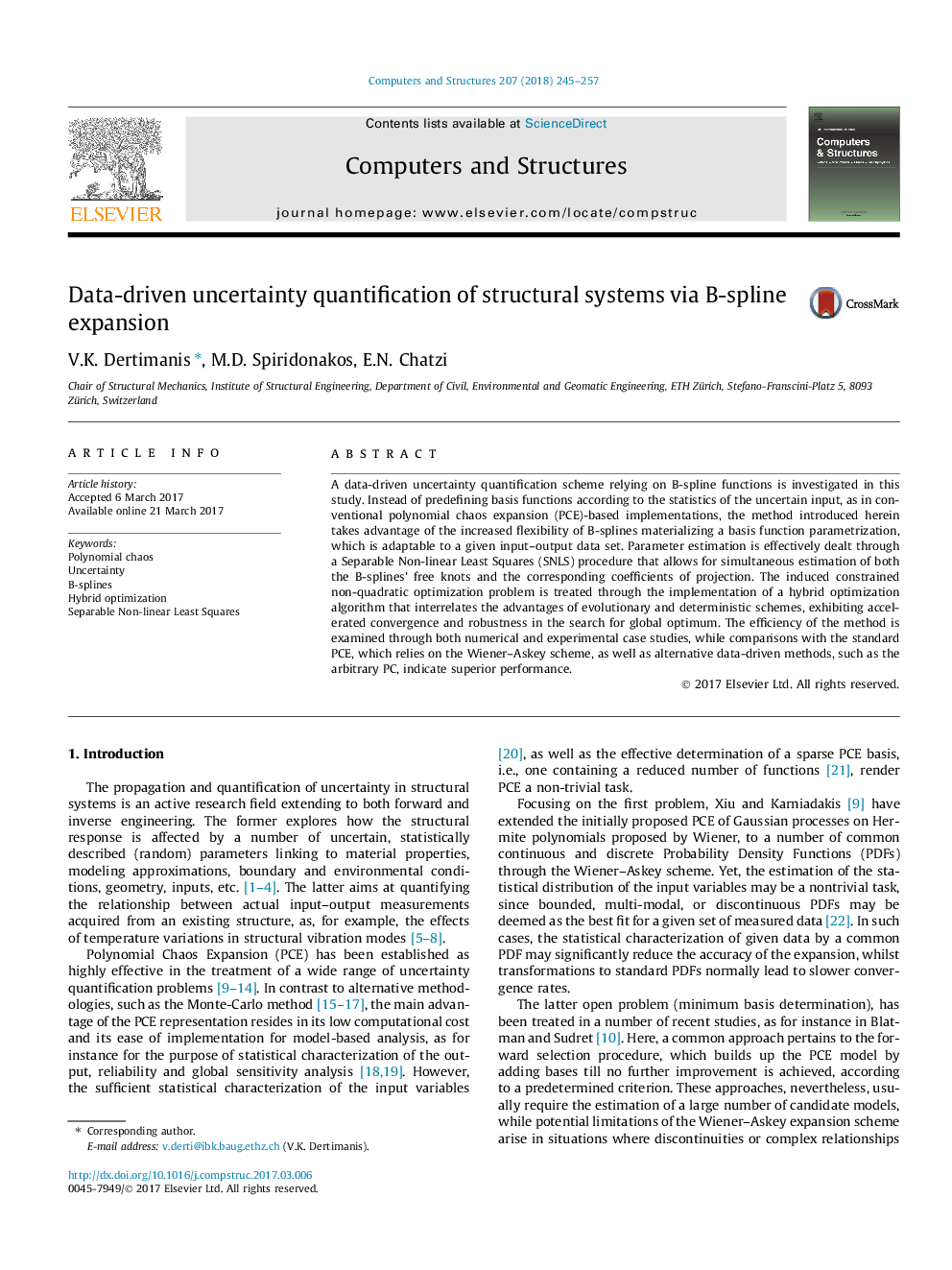| Article ID | Journal | Published Year | Pages | File Type |
|---|---|---|---|---|
| 10225983 | Computers & Structures | 2018 | 13 Pages |
Abstract
A data-driven uncertainty quantification scheme relying on B-spline functions is investigated in this study. Instead of predefining basis functions according to the statistics of the uncertain input, as in conventional polynomial chaos expansion (PCE)-based implementations, the method introduced herein takes advantage of the increased flexibility of B-splines materializing a basis function parametrization, which is adaptable to a given input-output data set. Parameter estimation is effectively dealt through a Separable Non-linear Least Squares (SNLS) procedure that allows for simultaneous estimation of both the B-splines' free knots and the corresponding coefficients of projection. The induced constrained non-quadratic optimization problem is treated through the implementation of a hybrid optimization algorithm that interrelates the advantages of evolutionary and deterministic schemes, exhibiting accelerated convergence and robustness in the search for global optimum. The efficiency of the method is examined through both numerical and experimental case studies, while comparisons with the standard PCE, which relies on the Wiener-Askey scheme, as well as alternative data-driven methods, such as the arbitrary PC, indicate superior performance.
Related Topics
Physical Sciences and Engineering
Computer Science
Computer Science Applications
Authors
V.K. Dertimanis, M.D. Spiridonakos, E.N. Chatzi,
